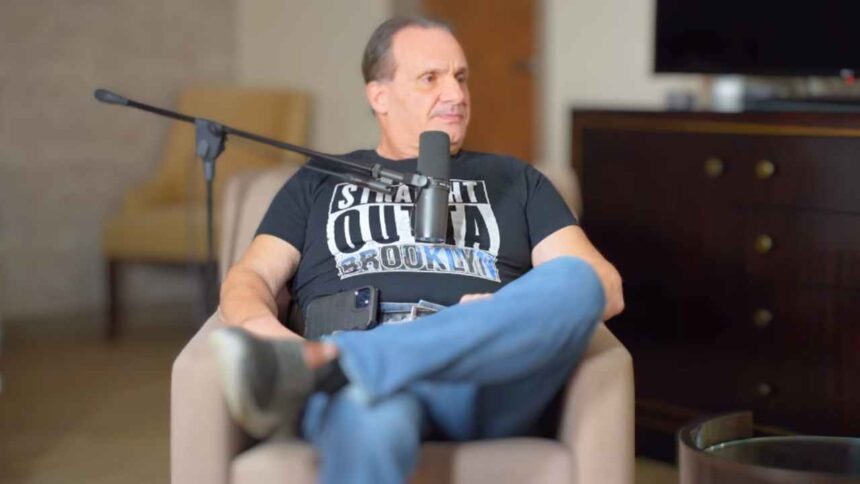In the world of professional wrestling, labels like “jobber” carry a weight of significance, often defining a wrestler’s role within the intricate ecosystem of the squared circle. Yet, for Steve Lombardi, better known as ‘The Brooklyn Brawler,’ this label holds no sting. In fact, he sees it as a badge of honor, emblematic of his enduring tenure in the business.
Lombardi’s journey in wrestling spans decades, during which he portrayed various characters, including the iconic Brooklyn Brawler, Kim Chee, and Abe ‘Knuckleball’ Schwartz. As the Brawler, Lombardi became synonymous with the term “jobber,” a designation reserved for wrestlers tasked with elevating the profiles of their more established counterparts by absorbing defeats in the ring.
But for Lombardi, being labeled a jobber is no cause for resentment. In a candid discussion on the Insight podcast, he shared his perspective on the term, emphasizing its inherent neutrality in the realm of employment.
“They used to say the word ‘jobber.’ I don’t care because my comeback used to be ‘Everybody’s a jobber.’ Your boss is your jobbee. I mean a job just means you have a job,” Lombardi remarked, showcasing his pragmatic outlook on the matter.
Moreover, Lombardi shed light on the evolving lexicon of wrestling terminology, noting the industry’s efforts to reframe perceptions surrounding the term “jobber.” From “enhancement talent” to “architect” and even “ring general,” the terminology has evolved, reflecting a broader shift in the industry’s narrative.
“They call it an enhancement talent… then they called it [an] architect. Then they called it ‘ring general.’ They even called me a ring general on The Rock’s show. ‘Rock, he’s a ring general, listen to everything he says.’ I’m not a ring general. I’m the most humble guy that you know because all I want to do is make everybody look great,” Lombardi explained, highlighting his commitment to the craft and his fellow wrestlers.
Despite his role as a perennial underdog in the ring, Lombardi’s career boasts several noteworthy victories, underscoring his versatility and resilience. From an upset win over Triple H on SmackDown in 2000 to a triumphant team effort at WWE TLC 2012, Lombardi’s victories serve as testament to his enduring impact on the wrestling landscape.
In the high-pressure environment of WWE, where rivalries are intense and stakes are high, the relationships built backstage often become pillars of support for wrestlers navigating the complexities of the industry. Wrestlers like Mark Henry and Owen Hart exemplify the bonds of camaraderie and mutual respect that permeate the WWE locker room. Despite the competitive nature of professional wrestling, these individuals prioritize solidarity and unity, fostering a sense of brotherhood that transcends individual achievements.
Mark Henry and Owen Hart’s enduring legacies in WWE extend beyond their in-ring accomplishments to encompass the values of loyalty, friendship, and mutual support. Through their actions backstage, they demonstrate a commitment to uplifting their peers and fostering a positive working environment. In an industry where egos can sometimes overshadow collaboration, Henry and Hart serve as beacons of integrity, reminding their fellow wrestlers of the importance of solidarity and camaraderie.
In times of adversity and triumph alike, the brotherhood of WWE remains a source of strength and inspiration for its members. Wrestlers like Mark Henry and Owen Hart embody the spirit of unity that defines this community, proving that, in the tumultuous world of professional wrestling, bonds forged behind the scenes are just as vital as those formed in the heat of battle.




